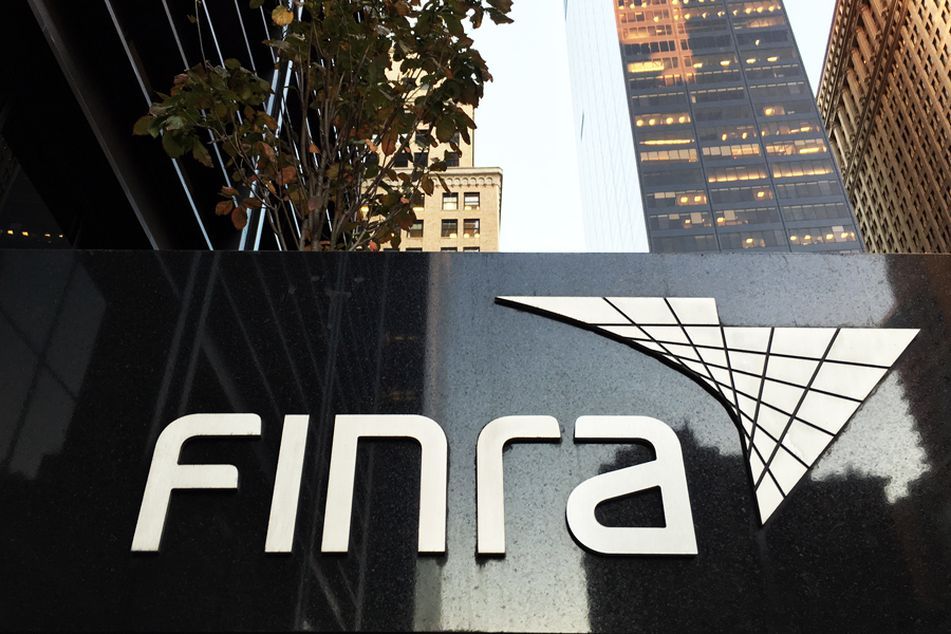Finra plan letting investors move arb claims to court heads to SEC for approval
 1
1
Critics say the proposal falls well short of what is needed to address unpaid arbitration awards.
The Financial Industry Regulatory Authority Inc. moved a step closer toward addressing the growing issue of unpaid arbitration awards by asking the Securities and Exchange Commission to approve a rule that will allow investors to move arbitration cases to court if the broker goes bankrupt.
The proposal, which Finra has been working on for at least two years, is expected to earn SEC approval. But, also as expected, those who represent investors against brokers or brokerage firms are giving the Finra proposal the cold shoulder.
“This is like putting a Band-Aid on a bullet hole,” said Andrew Stoltmann, a Chicago securities attorney.
“It’s a way for Finra to try to get cases where the investor is going to get stiffed and remove that case from the Finra platform to court,” Mr. Stoltmann. “This move isn’t done with good intentions but rather it’s done for optic purposes only. It doesn’t move the needle in the least. It’s just something Finra wants to trumpet to Congress to say they’re doing something to rectify this problem.”
The problem, which has long been an open secret across the financial services industry, is that for the past several decades, at least 25% of arbitration awards have gone unpaid.
Mr. Stoltmann expects those numbers to swell over the next few years “as Finra starts working through all the alternative investments that have gone belly-up.”
He cited as an example GPB Capital Holdings, which has been charged with operating a Ponzi scheme.
“Finra will be digesting hundreds of these cases involving firms like GPB and other toxic products that brokers have been peddling,” Mr. Stoltmann said.
Todd Cipperman, principal at Cipperman Compliance Services, is less critical and gives Finra some credit for its efforts.
“I think the proposal makes sense because it closes the door on broker-dealers using bankruptcy or dissolution to cut off client claims filed via arbitration,” he said. “Firms shouldn’t be able to run away from their aggrieved clients.”
Kevin Carroll, managing director and associate general counsel at the Securities Industry and Financial Markets Association, emailed the following statement in response to a request for comment:
“We are generally supportive of the proposal to the extent it helps address the problem of unpaid arbitration awards. In order to better address unpaid awards, and better protect investors, however, the proposal should apply not only to customer cases but also to intra-industry cases.”
Finra did not respond to a request for comment for this story, but its proposal states that, “Most unpaid customer arbitration awards are rendered against firms or individuals whose Finra registration has been terminated, suspended, cancelled, or revoked, or who have been expelled from Finra.”
The proposal goes on to state that “Finra believes that a customer should be able to change his or her litigation strategy during a pending case once the customer learns that a firm or an associated person has become inactive.”
Securities attorney Adam Gana also criticized the Finra proposal for not going far enough to address the problem of unpaid arbitration awards.
“What investors need is a pool of money to compensate them in the event the broker goes bankrupt or the broker-dealer withdraws its registration,” he said. “These unpaid arb awards are the bane of Finra’s existence, and they cause lots of pain to investors.”
Mr. Gana said unpaid arb awards represent the “most important issue facing Finra.”
“This rule proposal, while good, doesn’t go far enough,” he said. “It basically says if a party defaults in an arbitration hearing, it now gives the claimant the ability to withdraw and go to court. That’s not what investors need.”
[Recommended video: Bernie Clark: Zero commissions give advisers more opportunities to win clients]
Learn more about reprints and licensing for this article.








